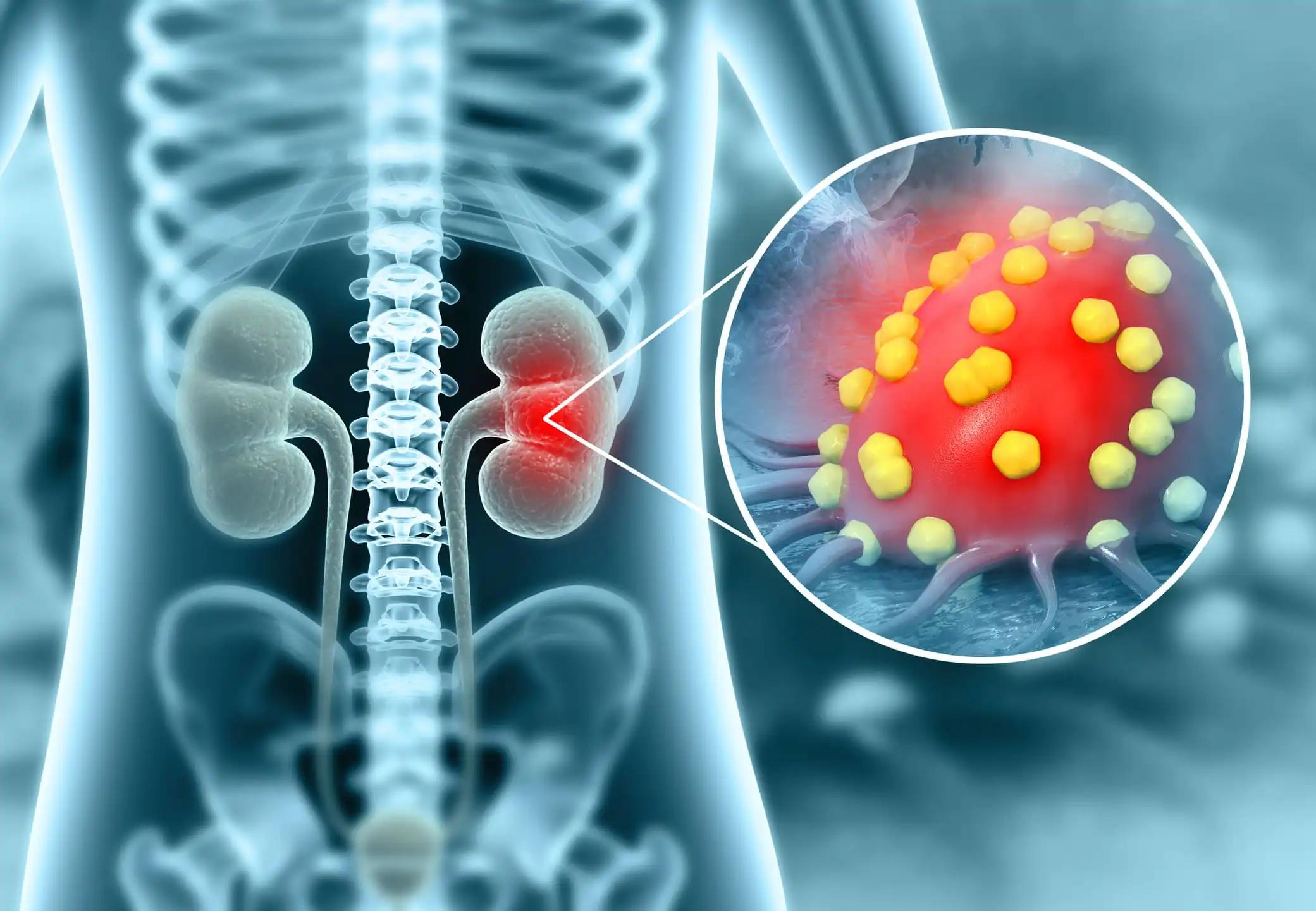KEY TAKEAWAYS
- The study aimed to develop a transcriptomic signature from sRCC samples to identify subsets benefiting from hyperaggression and ICB responsiveness.
- The primary endpoint was to calculate PFS.
- The SS shows a negative prognostic ability but predicts ICB response, aiding RCC therapy selection.
Renal cell carcinoma with sarcomatoid features (sRCC) is a distinct subtype of kidney cancer characterized by aggressive biology and poor clinical outcomes. Contrastingly, sRCC has shown a preferential response to immune checkpoint blockade (ICB) therapies. However, there is a lack of predictive biomarkers for ICB response within the renal cell carcinoma (RCC) population, presenting a critical unmet clinical need for optimal therapy selection.
Nicholas Salgia and the team aimed to derive a transcriptomic signature from sRCC samples that capture this paradoxical hyperaggression and ICB responsiveness, to identify patients (pts) with RCC subset to benefit from ICB, irrespective of sarcomatoid features.
Researchers obtained nephrectomy specimens from pts with RCC and processed those for single-cell RNA sequencing (scRNAseq) subsequently clustered, annotated, and computationally isolated the tumor cells. Tumor cell counts were aggregated and differential expression between sRCC and non-sRCC cases was performed.
Genes found to be significantly upregulated in sRCC were further filtered against differential gene expression data from 3 clinical RCC datasets (TCGA, CheckMate, and Javelin101) to identify those consistently enriched in sRCC across single-cell and bulk RNA sequencing. This gene signature was then assessed for its prognostic and predictive features in patient with RCC cohorts receiving ICB. The analysis aimed to identify markers that could predict ICB responsiveness, regardless of sarcomatoid feature presence.
Results revealed that a total 73,123 unique cells from 18 pts with RCC (10 sRCC; 8 clear cell RCC) were analyzed by scRNAseq, including 5,386 tumor cells. Differential gene expression of tumor clones revealed 20 genes significantly enriched in sRCC relative to ccRCC. Filtering against public differential gene expression data resulted in 10 genes included within the final Sarcomatoid Signature (SS). SS expression scores for clinical specimens were calculated by single-sample gene set enrichment analysis.
SS scores were significantly enriched in patient with sRCC tumors across TCGA KIRC, CheckMate, and IMmotion151 datasets (P<0.001 for all cohorts). Within TCGA KIRC, SS scores were significantly increased in pts with nuclear grade 4 (P<0.001) and metastatic (P<0.001) disease. Stratification by median SS score revealed worsened overall (HR=2.19, P<0.001) and disease-free (HR=2.08, P<0.001) survival among SS-high pts.
Amongst the CheckMate cohort (including patient samples from the CheckMate-010 & CheckMate-025 trials), SS-high pts experienced improved progression-free survival (PFS) when treated with nivolumab relative to everolimus (HR=0.70, P=0.055), whereas no difference was seen between therapies in the SS-low patient population (HR=0.98, P=0.9). In the IMmotion151 trial, which was not utilized for gene filtering and signature refinement and thus represents an independent validation cohort, SS-high pts experienced reduced PFS duration (HR=1.39, P<0.001) irrespective of treatment arm.
However, SS-high pts experienced improved objective response rates with the ICB-containing atezolizumab/bevacizumab regimen compared to sunitinib (P<0.001) and relative to SS-low pts receiving atezolizumab/bevacizumab (P=0.028). Within the SS-high population, pts experienced prolonged PFS with atezolizumab/bevacizumab (HR=0.70, P=0.003) relative to sunitinib, whereas no PFS difference between arms was seen in the SS-low population (HR=1.01, P>0.99).
The study concluded that the novel SS derived from scRNAseq demonstrated a prognostically negative yet positive predictive value for ICB response. In the scenario where the biomarkers are not substantially efficacious, the SS, upon prospective validation, may help in optimal therapy selection for pts with RCC.
Source: https://kcrs.kidneycan.org/wp-content/uploads/2024/06/KCRS24-Abstract-Book-6.27.24.pdf
Salgia N, Aubrecht W, Attwood K, et al. (2024). “Applying single cell RNA sequencing of sarcomatoid renal cell carcinoma for the development of a novel transcriptomic biomarker to predict immunotherapy response.” Presented at KCRS 2024, (Abstract 26)



